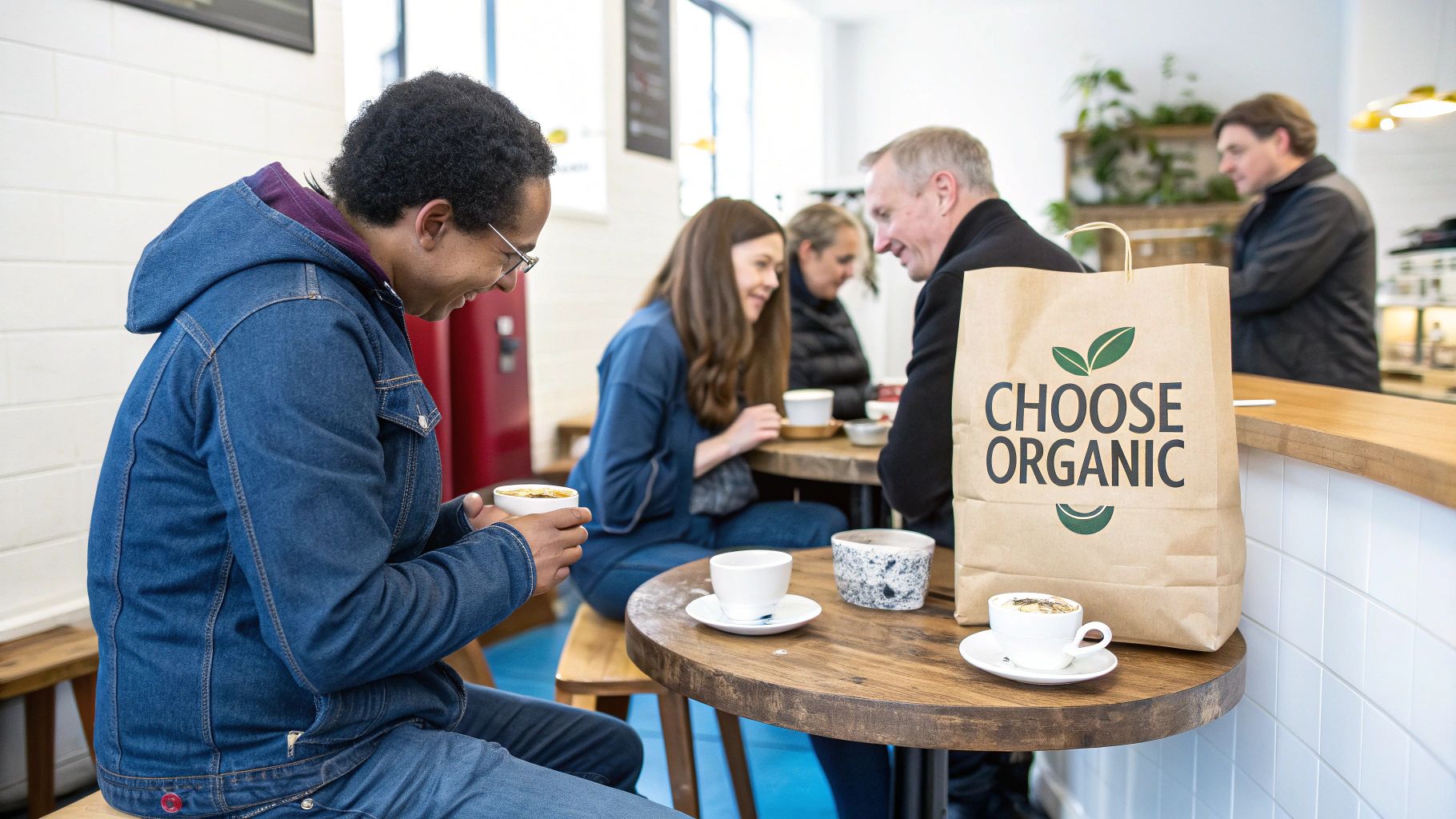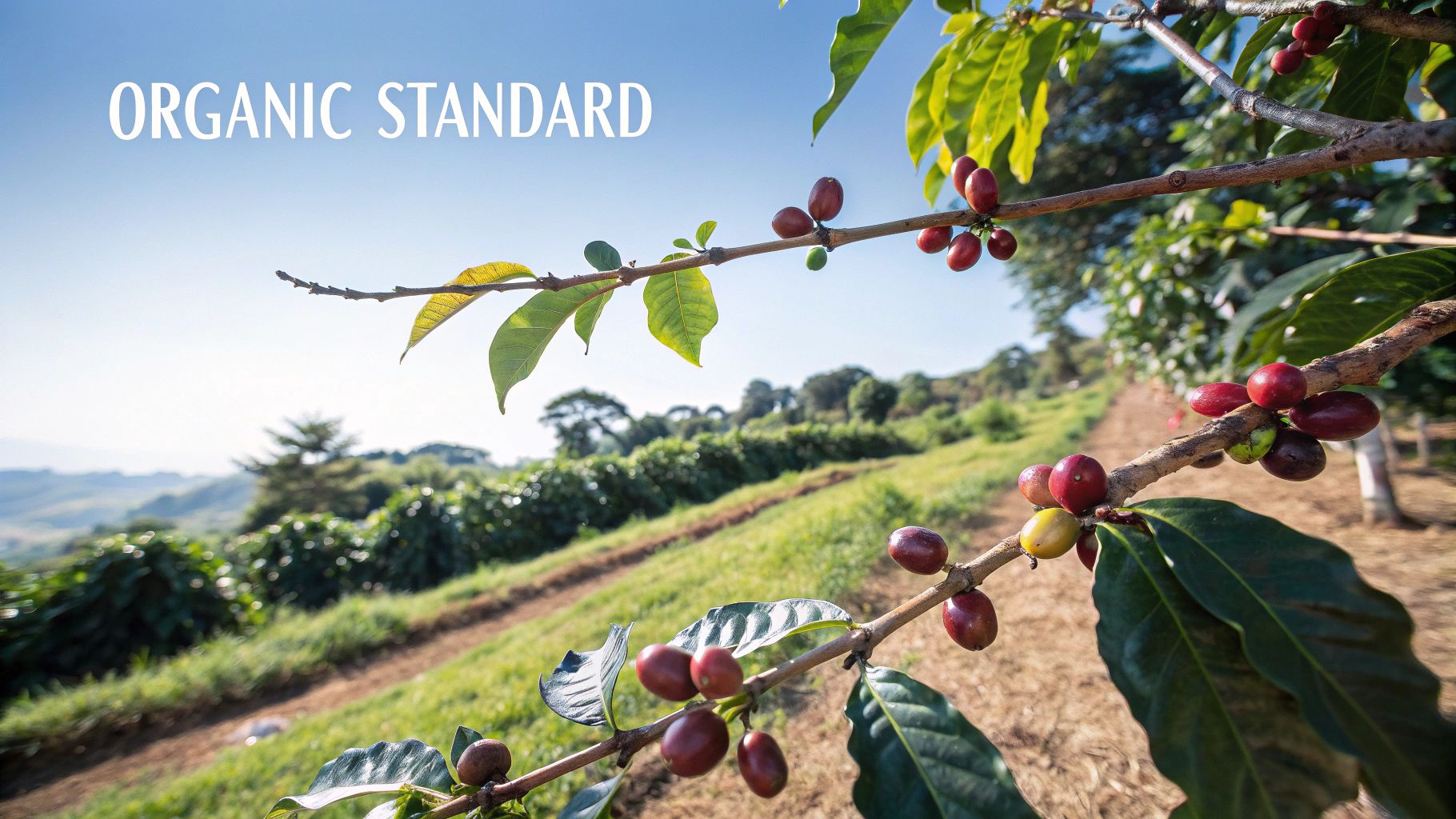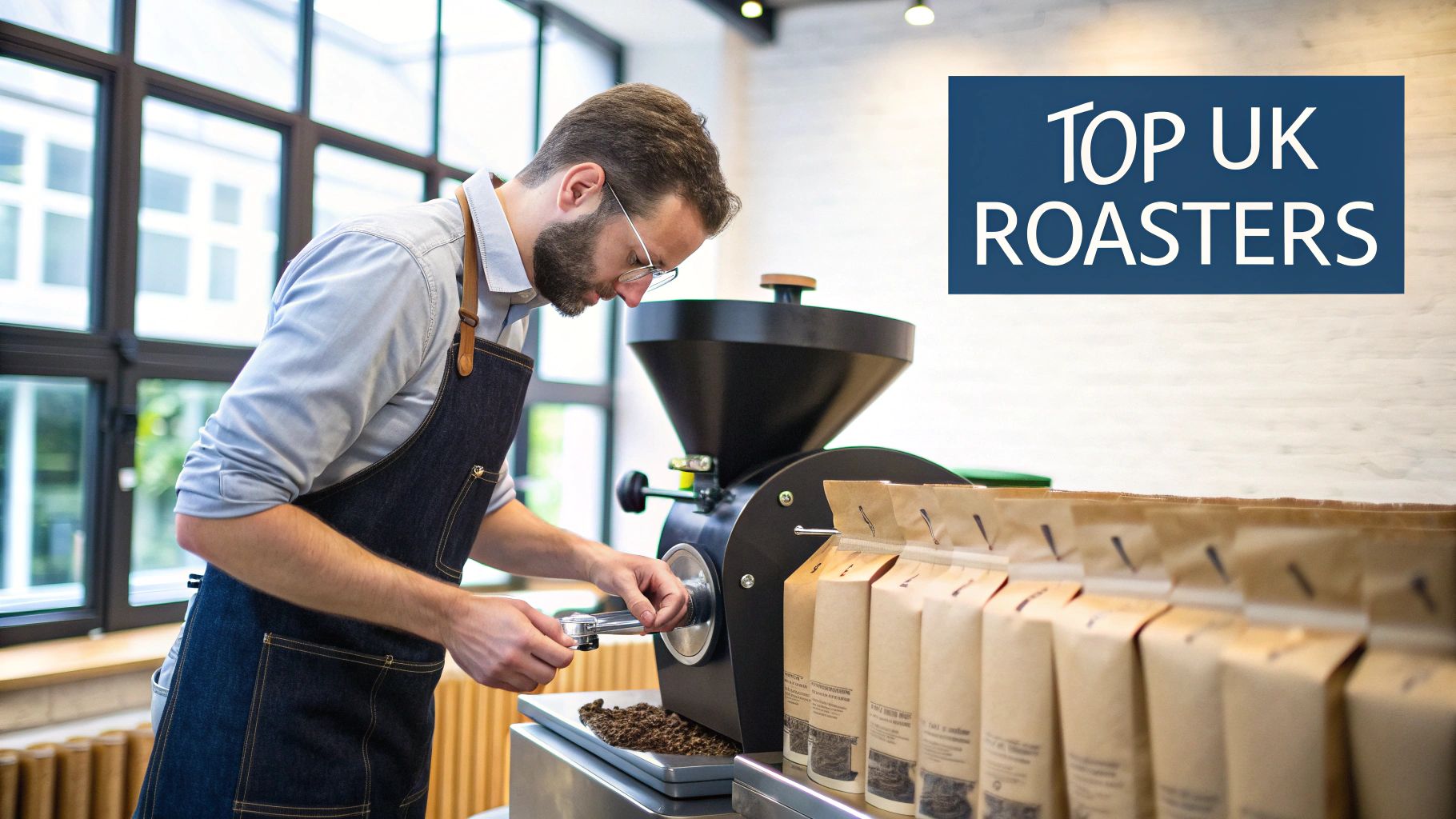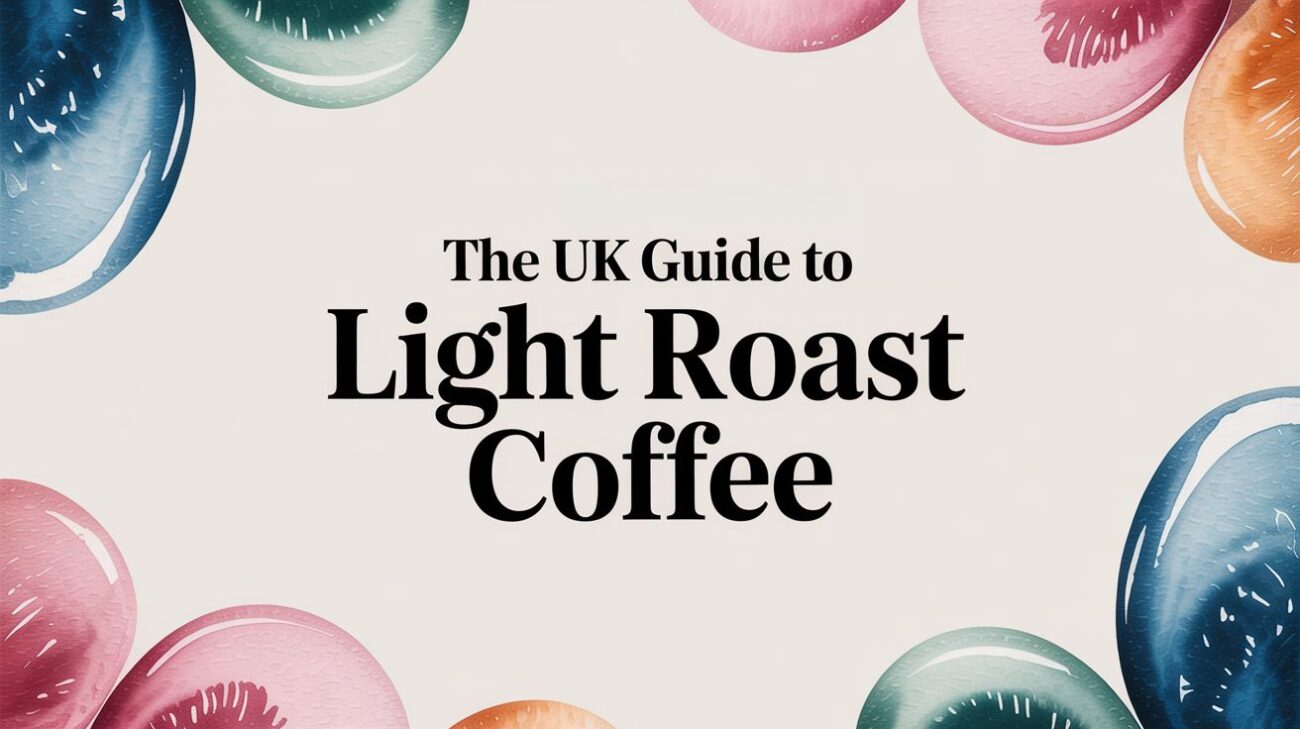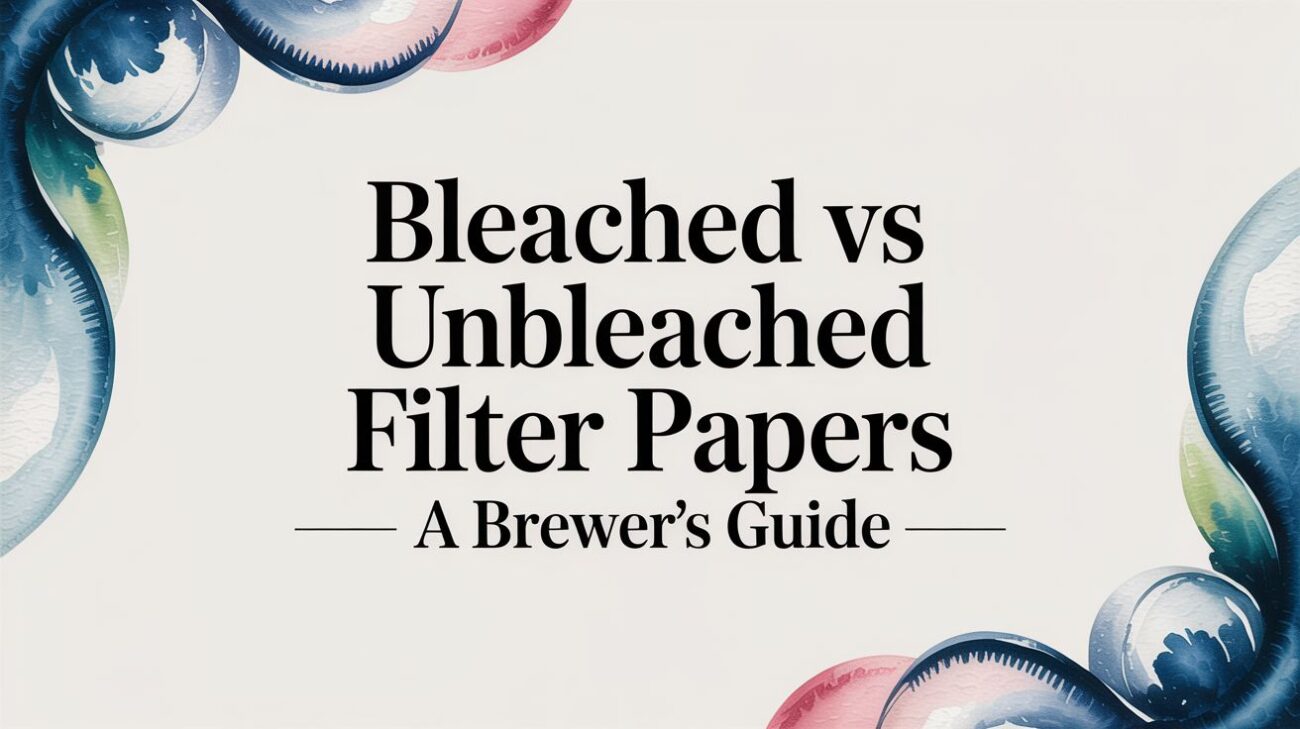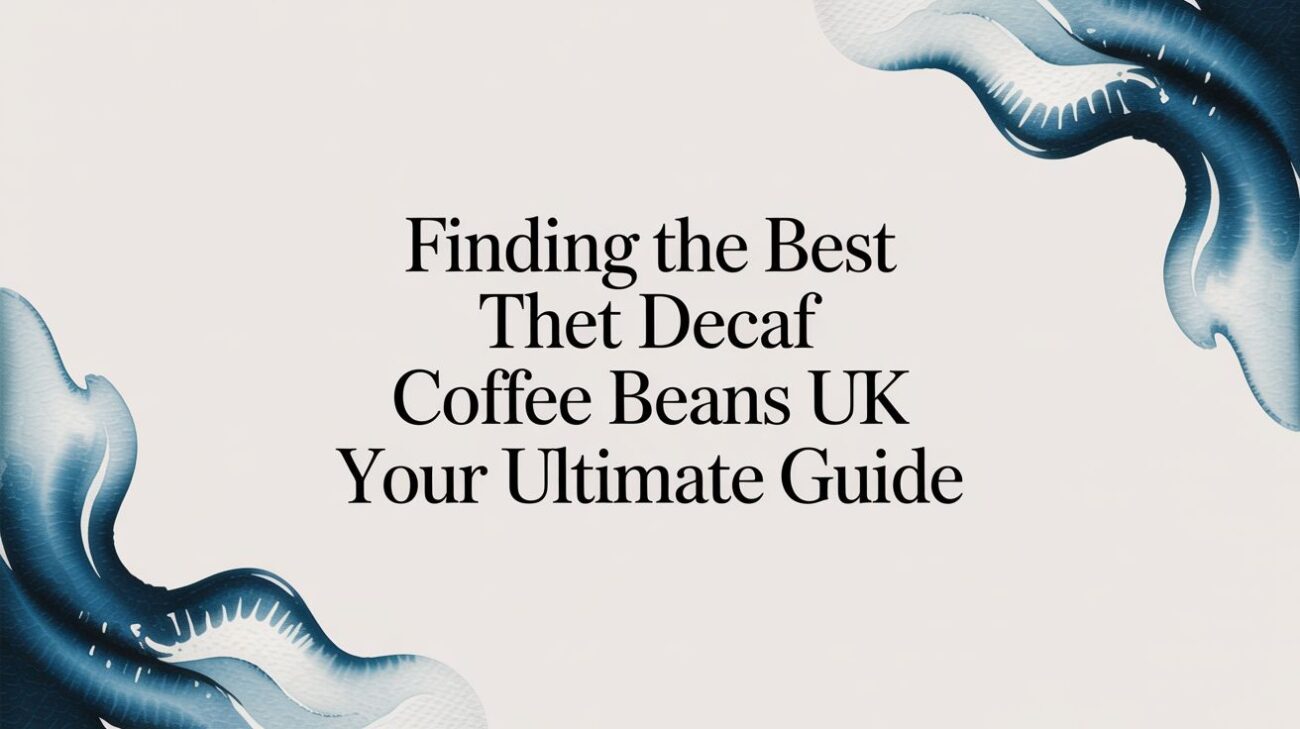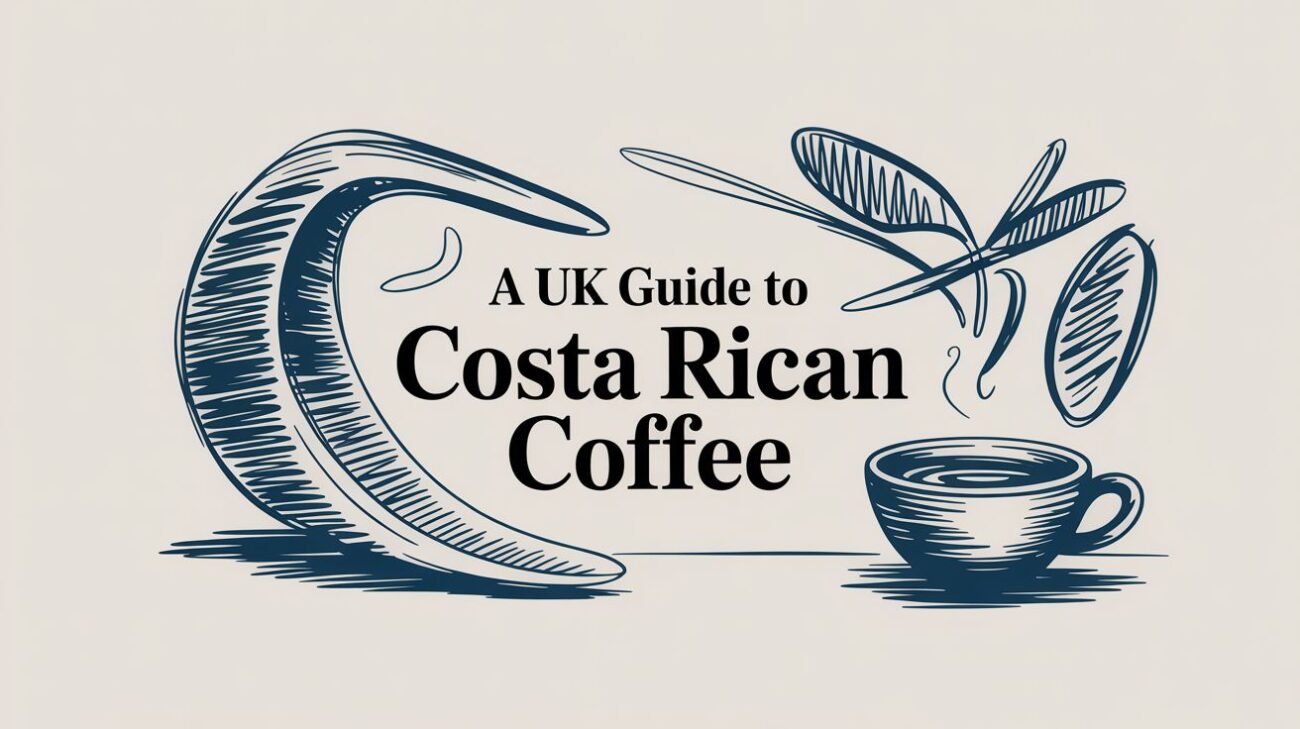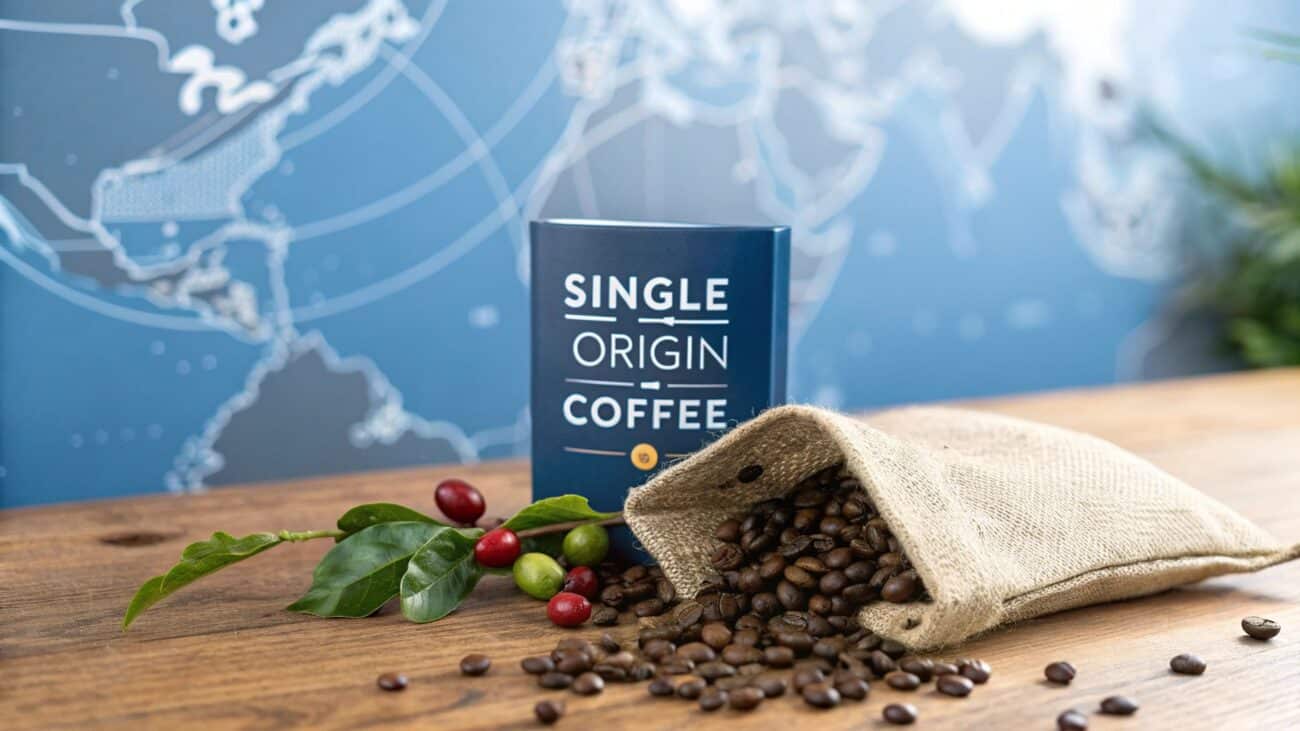A Guide to Organic Coffee Beans UK
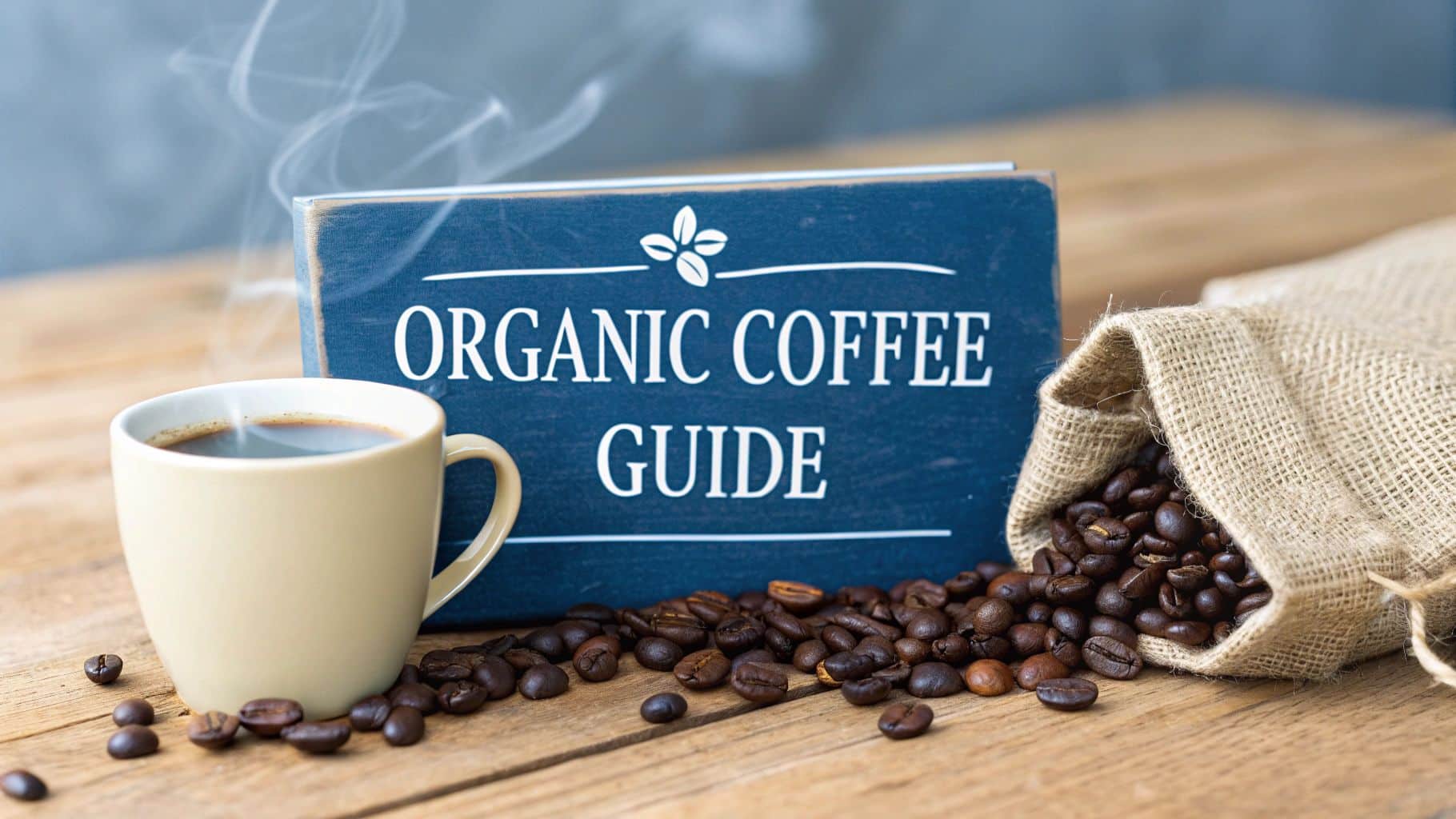
Choosing the right organic coffee beans in the UK isn't just about grabbing a bag off the shelf anymore. More and more of us are looking past a simple caffeine fix, searching instead for a morning brew that’s more conscious, flavourful, and sustainable. It’s a real shift in thinking, a sign that we want our coffee to be better for us and for the planet.
Why UK Drinkers Are Choosing Organic Coffee
The UK's vibrant coffee scene is definitely changing. What was once just a quick morning ritual is now a chance to make a considered choice about our health, environmental impact, and ethics. People are starting to ask the important questions: where do my beans actually come from, and how were they grown?
This curiosity is what's fuelling the demand for organic coffee. Choosing organic is a commitment to farming without synthetic pesticides, herbicides, or genetically modified organisms (GMOs). Don't think of an organic farm as a sterile production line; picture it as a thriving, balanced ecosystem where everything works in harmony.
A Growing Market
While it’s still a smaller slice of the pie, the appetite for organic options is undeniable. The UK organic coffee sector pulled in around USD 129.4 million in revenue, a pretty hefty figure in a country that knocks back nearly 98 million cups of coffee every single day.
But here’s the thing: with the total UK coffee market valued at a massive USD 25.2 billion, organic coffee currently makes up just over 0.5% of that. That tells us there's huge potential for growth as more people catch on. You can dig into more data on the UK's organic coffee market from Grand View Research if you're curious.
This growing interest goes hand-in-hand with a wider appreciation for high-quality, traceable products. It's a big part of why understanding the finer points of coffee is becoming more mainstream. For a deeper dive into what makes a good coffee truly great, you might want to read our guide on what specialty coffee is.
The move towards organic is much more than a trend; it's a reflection of a deeper desire for transparency and quality. Drinkers want to know their purchase supports healthier farming practices and makes a positive difference to the environment.
So, what are the main drivers behind this shift? It really boils down to three key things:
- Purity and Health: People want products free from synthetic chemical residues, plain and simple. It’s about ensuring a cleaner, purer cup.
- Superior Flavour: Many coffee lovers swear that organic farming methods—often paired with traditional techniques like shade-growing—result in beans with a more complex and satisfying taste.
- Environmental Stewardship: Choosing organic means you're backing a way of farming that protects biodiversity, conserves precious water, and builds healthy, resilient soil for the future.
Understanding the Organic Coffee Standard
When you see the word ‘organic’ on a bag of coffee, it’s much more than just a marketing buzzword; it’s a legally protected guarantee. For organic coffee beans in the UK, this label signals a commitment to a specific, rigorously audited way of farming. At its heart, it’s all about working in harmony with nature, not against it.
Think of it like this: a conventional coffee farm can sometimes resemble a factory floor, where chemical inputs are used to push for maximum output. An organic farm, on the other hand, is managed as a self-sustaining ecosystem. It relies on natural processes to thrive, creating a vibrant and biodiverse environment where coffee plants grow as part of a healthier whole.
This means farmers completely ditch the synthetic pesticides, herbicides, and artificial fertilisers. These substances are strictly forbidden under organic standards. Instead, they use natural methods like composting to enrich the soil and introduce beneficial insects to manage pests, nurturing the land for the long haul.
Who Sets the Standards in the UK
In the UK, you don’t just have to take a company’s word for it. The ‘organic’ claim is backed by stringent certification from independent bodies. When you’re browsing for beans, these logos are your assurance of authenticity.
One of the most recognisable and respected certifiers in the country is the Soil Association. Their logo has become a trusted symbol of the highest organic standards. Seeing it on a package means the coffee has been produced in a way that protects wildlife, benefits the climate, and ensures the highest levels of animal welfare.
These bodies make sure that from the moment a coffee cherry is picked to when the beans are roasted and packed, every single step sticks to strict organic principles. This full-traceability model gives you complete transparency and peace of mind.
Beyond the Label with Shade-Grown Coffee
Many organic farms also employ traditional, sustainable practices that go even further, like shade-growing. This isn't some new trend but a return to how coffee has been cultivated for centuries. Instead of clearing land for sun-drenched monoculture crops, coffee plants are grown under the protective canopy of native forest trees.
This method creates a rich habitat for birds and other wildlife, which in turn help control pests naturally. But the benefits extend right into the flavour of the coffee itself.
Shade-grown coffee beans mature more slowly, allowing them to develop a more complex and nuanced flavour profile. This patient process often results in a smoother, richer, and more satisfying cup.
Choosing organic, especially shade-grown varieties, supports a system that values quality and sustainability in equal measure. It’s an investment in a cup of coffee that is not only purer and more flavourful but also actively contributes to the health of our planet.
The Real Benefits of Choosing Organic Coffee
Deciding to buy organic coffee beans in the UK is about so much more than a simple label on a bag. It’s a choice that connects your daily ritual to real, tangible benefits for both you and the planet. That one small decision in your shopping basket sends out a powerful ripple effect, starting from the farm and ending right in your morning cup.
On a personal level, the most immediate reward is the peace of mind you get from knowing exactly what is—and isn't—in your coffee. Organic standards strictly forbid the use of synthetic pesticides and herbicides, which means your brew is clean and free from any chemical residues.
Better for You and the Planet
Beyond your own health, this choice champions a much healthier way of farming. Conventional coffee growing can be an intensive process, often stripping the soil of its nutrients and polluting local water sources with chemical runoff. Organic farming, on the other hand, is all about giving back to the land.
Organic farmers are more like custodians of the soil. They focus on building rich, fertile earth using natural methods like composting, which not only grows healthier coffee plants but also helps the soil hold onto water more effectively.
This focus on soil health is everything. Healthy soil creates a resilient ecosystem that supports a whole web of life, from the tiny microorganisms underground to the birds and insects that are essential for a balanced environment. By choosing organic, you’re directly funding these regenerative practices.
A More Sustainable Cycle
The positive impact doesn't stop at the farm gate; it continues through the entire coffee lifecycle. Organic practices naturally encourage biodiversity, conserve precious water, and cut down on pollution, all of which contribute to a more sustainable and resilient future for agriculture. It's a clear-cut example of how our choices as consumers can drive genuine positive change.
This sustainable loop even continues after you've finished your brew. The used grounds from your organic coffee are a brilliant resource for your garden. You can learn more about how to give back to the earth by checking out our complete guide to composting coffee grounds. It brings the whole process full circle, returning valuable nutrients right back to the soil.
Ultimately, opting for organic coffee beans in the UK is an investment in quality, health, and environmental stewardship. It's a simple switch that helps ensure your daily coffee ritual is a force for good, supporting healthier farms, healthier communities, and a healthier planet for us all.
How to Choose Your Perfect Organic Coffee Beans
Diving into the world of organic coffee beans in the UK can feel a bit like exploring a new city without a map. But don't worry, finding the perfect bag for you is much simpler than it seems.
It really just boils down to a few key things that define what ends up in your cup. Once you get a handle on the bean type, where it's from, and how it’s been roasted, you’ll be picking out coffee like a pro.
The first big signpost on your journey is the bean type itself. Most speciality coffee you'll find is made from Arabica beans, celebrated for their complex, aromatic notes that can be wonderfully fruity or floral with a bright, crisp finish.
Then you have Robusta beans, which pack a much bigger caffeine punch and deliver a bolder, more intense flavour—think nutty or chocolatey. You won't see them as often in the speciality organic market, but they have their fans.
Decode the Roast and Flavour Profile
After settling on a bean type, the next crucial decision is the roast level. This is where the magic happens. The roasting process is what transforms a simple green bean, unlocking all of its unique and delicious flavours. Here in the UK, roasters generally group their creations into three main levels, each offering a totally different experience.
- Light Roast: Roasts like this are all about preserving the bean's true, original character. You can expect a bright, acidic cup, often with vibrant fruity or floral notes.
- Medium Roast: This is the crowd-pleaser, the sweet spot that offers a beautifully balanced profile. It’s got a smoother body, the acidity is toned down, and you’ll often taste lovely caramel or nutty flavours.
- Dark Roast: For those who love a bold, rich brew, this is it. These beans are roasted longer to develop deep, intense flavours. Acidity is very low, making way for notes of dark chocolate, smoke, and even a hint of spice.
This little decision tree just goes to show how simple it can be to choose a coffee that’s not only good for you, but good for the planet too.
Finding Your Perfect Match
To find that perfect bag of beans, let's bring a couple of other factors into the mix.
Where your coffee comes from—its origin—plays a massive part in how it tastes. For example, coffees from Africa are often bursting with bright, fruity flavours, while beans from South America tend to be smoother, with those classic chocolatey and nutty notes. A fantastic way to discover these unique tastes is to try beans from a specific farm or region. If you want to dive deeper into this, our guide to single-origin coffee beans is a great place to start.
Finally, think about how you're going to brew it. A light, delicate roast might really sing when made with a pour-over, letting all those nuanced flavours shine. On the flip side, a punchy dark roast is often the perfect foundation for a rich, satisfying espresso.
To help you put it all together, here’s a quick guide to matching different roasts with your taste preferences.
Matching Organic Coffee Characteristics to Your Taste
Use this table to find the right organic coffee beans based on common flavour profiles, roast levels, and ideal brewing methods.
| Characteristic | Light Roast | Medium Roast | Dark Roast |
|---|---|---|---|
| Flavour Profile | Bright, acidic, floral, fruity | Balanced, smooth, nutty, caramel | Bold, rich, smoky, dark chocolate |
| Body | Light and delicate | Medium and rounded | Full and heavy |
| Acidity | High | Medium | Low |
| Best For | Pour-over, filter, Aeropress | Drip coffee, filter, espresso | Espresso, French press, moka pot |
Ultimately, choosing the right coffee is a personal journey. Don't be afraid to experiment! Try different origins and roasts until you find the ones that make your taste buds happy.
Key Takeaway: For the freshest, most flavourful coffee imaginable, always buy whole organic coffee beans and look for the roast date on the bag. Try to get beans roasted within the last few weeks, and only grind them right before you brew. It makes a world of difference.
Discover The UK's Top Organic Coffee Roasters
Exploring the world of organic coffee beans in the UK is a genuinely rewarding experience, especially once you start connecting with the passionate people behind the beans. The UK is buzzing with independent roasters who are absolutely obsessed with quality, sustainability, and doing right by the farmers. These artisans are the real heart and soul of the speciality coffee scene, turning carefully grown beans into the incredible brews we can't get enough of.
When you support these businesses, you're doing so much more than just buying coffee. You're actively investing in a cleaner, more transparent supply chain. Many of these roasters build direct, personal relationships with farmers, making sure they’re paid a fair price for all their hard work. It's this deep connection to the source that turns a simple cup of coffee into something with a story and a purpose.
What Makes These Roasters Stand Out
The best organic roasters dotted around the UK all tend to share the same core philosophy: amazing coffee starts with exceptional beans grown in healthy, thriving ecosystems. This belief is what sends them on a mission to find the finest organic beans from across the globe, obsessing over every little detail from the farm right through to the final roast.
They are true masters of their craft, possessing an almost intuitive understanding of how to unlock the unique flavour profile tucked away in each batch of beans. You can taste their dedication in the final product—a cup of coffee that isn't just delicious, but is a genuine expression of its origin. To get a better feel for the UK's brilliant coffee scene, check out our guide to the top places to buy specialty coffee beans.
Choosing an independent organic roaster is a powerful way to vote with your wallet. It supports small businesses that prioritise ethical practices and environmental stewardship, helping to shape a better future for the coffee industry.
A Few Names To Get You Started
While there are countless fantastic roasters out there championing organic coffee, here are a few well-regarded names known for their unwavering commitment to quality and sustainability. Think of this as a reliable starting point for anyone looking to dive into the best organic coffee beans the UK has to offer.
- Volcano Coffee Works: A Brixton-based roastery and a certified B Corp, they're known for paying farmers well above Fairtrade prices and for their deep dedication to ethical practices.
- Pact Coffee: Another B Corp certified roaster, Pact is all about freshness and direct trade relationships. They offer a huge range of high-quality, ethically sourced beans.
- Rave Coffee: Tucked away in the Cotswolds, Rave is committed to total transparency and sustainability. They even donate 1% of all their sales to environmental causes as a member of 1% For The Planet.
These roasters, and many more like them, are pushing the entire industry in the right direction. For anyone thinking about joining the coffee world themselves, looking over a coffee shop equipment checklist can offer some valuable insights. But for now, exploring what these brands have to offer is a brilliant way to kick off your organic coffee adventure.
The Rise of Organic Coffee in the UK Market
To really get a feel for why organic coffee beans in the UK are becoming so important, you have to appreciate just how much we Brits love our daily brew. The UK coffee scene is massive—a sprawling world of high-street giants, buzzing independent cafes, and countless home-brewing fanatics.
This isn't some fleeting trend; it’s a deep-seated cultural habit. We're drinking coffee at an incredible rate, which has created a mature and fiercely competitive market. But even within this huge industry, something significant is bubbling up: a powerful shift towards more conscious coffee choices.
A Growing Niche in a Giant Market
While the overall coffee market is colossal, the organic corner is where the real excitement is happening. More and more coffee drinkers are looking past just price and convenience. They're asking for transparency and sustainability from the brands they buy from.
This groundswell of demand is making organic options more visible than ever before. You no longer have to hunt it down in specialist health food shops. From the big chains to your local independent cafe, businesses are getting the message loud and clear, adding high-quality organic choices to their menus and shelves.
Your decision to choose organic coffee is part of a much larger movement. It reflects a collective desire for products that are not only better for us but also better for the planet and the people who grow them.
Understanding the Scale of UK Coffee Consumption
To put this organic movement into perspective, let's look at the numbers. When we're out and about, Brits bought a staggering 29.8 million kilograms of coffee from cafes and restaurants, a figure expected to climb to 34.5 million kilograms by 2028. The at-home market is even bigger, with consumption predicted to hit 73.22 million kilograms in 2025. You can dig into more UK coffee consumption statistics to see the full picture.
These figures paint a picture of a massive industry. And even though organic coffee currently makes up just a small slice of that pie, its steady, consistent growth points to a powerful and lasting trend.
Choosing organic is more than a personal preference. It's a vote for a different kind of coffee industry—one built on quality, transparency, and a genuine respect for the environment.
Common Questions About Organic Coffee
Diving into the world of organic coffee usually sparks a few questions. To help you feel completely confident about what you’re buying, let’s clear up some of the things we hear most often from UK coffee drinkers.
First up, the big one: is buying organic coffee beans in the UK always more expensive? Sometimes, yes, there can be a slight price difference. This is down to the sheer hard work and strict certification involved in organic farming. But for many, the incredible flavour, peace of mind, and environmental benefits make that small extra cost more than worth it.
Taste and Storage Tips
Perhaps the most common question we get is whether organic coffee actually tastes better. Many coffee lovers, us included, would give that a resounding yes. Organic beans are grown in healthier, nutrient-rich soil without any chemical nasties, which often results in a cup with a much more complex and refined flavour profile.
Lots of organic coffees are also shade-grown, which is the traditional way of doing things. This method lets the coffee cherries ripen much more slowly. A little patience goes a long way here, leading to a smoother, sweeter, and more satisfying brew that’s bursting with the unique character of its home.
Of course, once you’ve got those amazing beans, you need to look after them. Proper storage is the key to protecting that fantastic flavour. It’s simple, but it makes all the difference.
- Keep it Airtight: Your beans’ number one enemy is oxygen. Store them in an airtight container to keep them from going stale.
- Find a Cool, Dark Place: Think kitchen cupboard, not windowsill. Heat, light, and moisture will ruin your coffee faster than anything else.
- Avoid the Fridge: It might seem like a good idea, but the fridge and freezer are no-go zones. They introduce moisture and condensation, which will destroy the beans’ delicate oils and flavour.
The ultimate tip for freshness? Always buy whole beans and grind them right before you brew. For a deeper dive into getting the most from every bag, check out our detailed guide on how to store coffee beans properly.
Ready to taste the difference for yourself? Explore the exceptional range of freshly roasted organic coffee at Seven Sisters Coffee Co and discover your new favourite brew. https://sevensisterscoffee.co.uk

